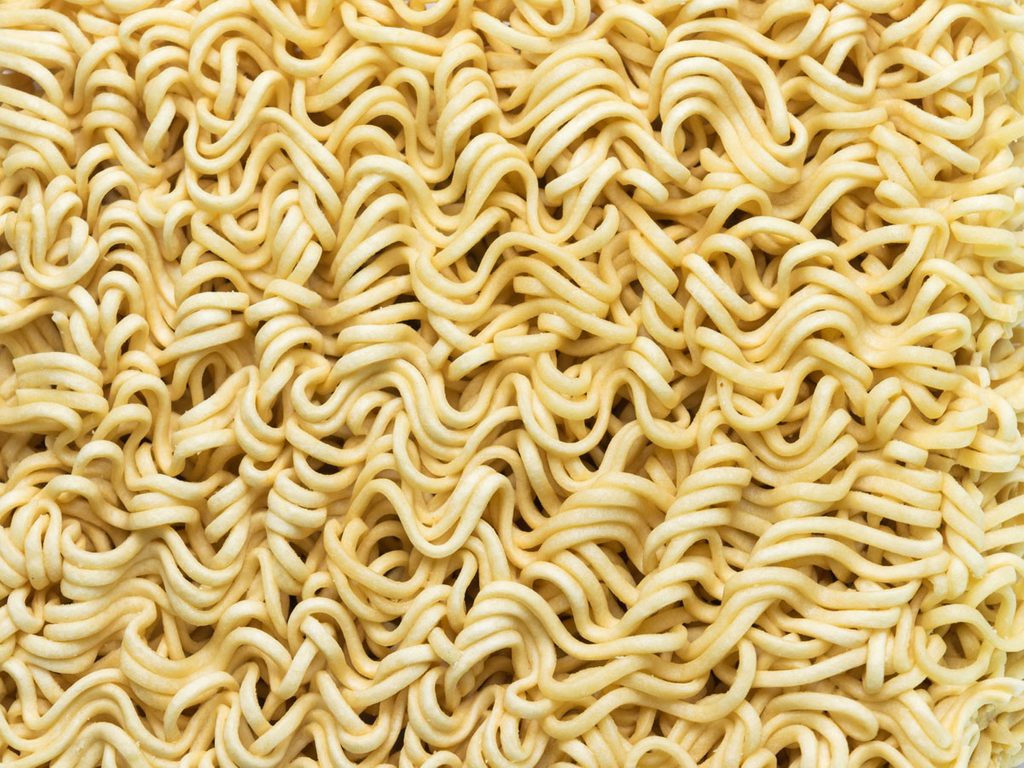What Happens to Your Body When You Eat Instant Ramen

When you ponder the health content of instant ramen noodles, buzz words like "sodium" and "refined carbohydrates" probably come to mind. But do you know how those things actually affect your body?
It’s no secret that a package of instant ramen noodles can taste pretty good. Whether it’s an absolute last-resort option when there’s nothing else in your pantry, or you find yourself cooking it up every time you need a quick meal, you’ve probably succumbed to the salty, slurpy goodness on more than one occasion. And while you know it’s not health food, do you know what it actually does to your body?
There are a couple different things that make instant ramen a relatively unhealthy choice.
There’s not much to these provision packets besides salt and carbohydrates. While those certainly get thrown around quite a bit as “bad-for-you” buzzwords, you may not know how they actually might harm your body. “One container of instant ramen can have almost half the daily recommendation for sodium, and is often low in beneficial nutrients such as fibre, vitamins, and minerals,” says Patricia Bannan, RDN, author of Eat Right When Time is Tight. When you ingest that much sodium in a single sitting, your body overcompensates by retaining more water. This can cause temporary water weight gain, leaving you feeling bloated and lethargic.
But while you may feel bloated, chances are you won’t feel full. Since the ramen contains lots of refined carbohydrates with virtually no protein or fibre, it’s essentially the very definition of empty calories. And you’ve probably heard the song-and-dance about refined carbs; eating too much can lead your blood sugar to spike and then dip, leaving you hungry and ready to eat again—which leads to weight gain.
Doctors do know that years of eating instant ramen packets are linked to poor health.
A study published in 2014 in the Journal of Nutrition, assessed the long-term consequences of ramen consumption in South Korea, where it’s a major meal staple. The researchers found that women who ate instant ramen noodles at least twice a week had a 68 percent higher risk for metabolic syndrome—a combination of symptoms that raise the risk of type 2 diabetes and heart disease—than those who ate them less often.
In short, eating ramen once in a while won’t wreck your health—as is true with most processed foods. In fact, “if you still want to enjoy instant ramen soup, use half the amount of the flavour packet provided, or don’t use it at all,” says Bannan. “Flavour the soup yourself to control sodium amounts, and add fresh vegetables for fibre and lean protein for staying power.” But avoid making it a regular part of your diet.
Next, find out the foods nutritionists never, ever eat.




